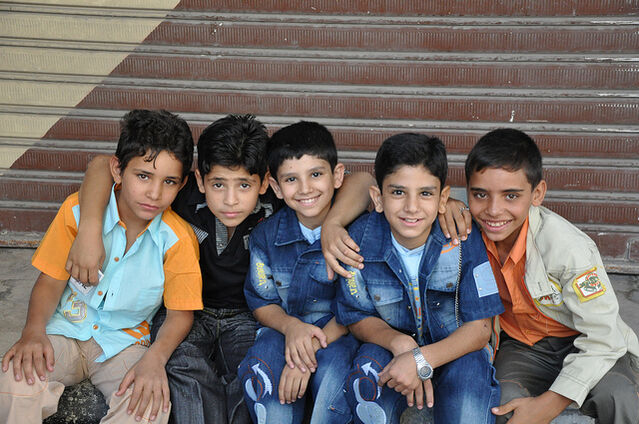Friends
5 Friendship Skills Your Child May Have Forgotten
Are your child’s social skills rusty?
Posted March 31, 2021 Reviewed by Jessica Schrader
Key points
- A year of sitting home alone can mean your child has forgotten a lot about getting along with peers.
- Five essential friendship skills are reaching out, stepping back, blending in, speaking up, and letting go.
- Social skills require flexibly adjusting behavior to fit the situation as well as individual needs or desires.

For many children, the world is starting to open up again. More vaccines and warmer weather mean schools are increasingly allowing kids to return in person.
After a year of living remotely, this can feel like a big adjustment. Drawing from Growing Friendships: A Kids’ Guide to Making and Keeping Friends, a book for children ages 6-12 years that I wrote with Christine McLaughlin, here’s a quick overview of some of the crucial social skills your child may have forgotten.
1. Reaching out to make friends
When school involved rolling out of bed and logging into zoom, there was no need to even acknowledge anyone. Opportunities to reach out were very limited and mostly restricted to close friends.
Once kids are back together in person, showing openness to friendship is essential. The skill of reaching out includes getting to know people by asking interested questions, offering sincere compliments, and making plans to do fun things together, but the most basic form is just greeting people.
Here’s a quick video about the steps of a friendly greeting.
2. Stepping back to keep friends
Sometimes, without meaning to, kids end up doing things that push friends away. They come on too strong or do things that annoy others. When kids had very little in-person contact with peers, problems with stepping back mostly involved overly persistent texting.
Once kids are in person, knowing how to recognize and respond appropriately to stop signals from peers will be essential. Everyone makes social mistakes sometimes, and that’s OK as long as we quickly stop doing whatever is bothering the other person. Younger or more impulsive kids may need a transition activity, such as sitting on their hands or making a statement such as “OK, I’ll stop now” to ease into stopping.
The skill of stepping back also involves knowing how to resolve arguments, giving friends the benefit of the doubt, and handling our own distress in stressful situations. Stepping back is not an easy thing to do, but it’s important because it’s a way of caring for ourselves and others.
3. Blending in to join friends
One-on-one friendships are great but being part of a group of friends can multiply kids’ fun. The skill or blending in involves figuring out how to join a group, getting along with partners or teammates and making wise choices about which groups to join.
The two main ways kids struggle with this skill are either by holding back and not entering the group or barging in, disrupting the on-going conversation or activity. The key is to watch or listen to what’s going on, then slide into the action in a way that contributes to the on-going activity.
Blending in doesn’t mean being exactly the same as everyone else or being a follower. It’s about understanding and respecting other people’s point of view in order to work together, play a game, or have a good conversation.
4. Speaking up to share with friends
Sometimes it’s important to go with the flow, but sometimes kids need to speak up and say what they think or want. Good friends get to know each other better by sharing what they’re thinking and feeling.
The skill of speaking up is about being able to say what we mean without being mean. This includes using “I” statements, being able to say “no” when needed, handling teasing, and also having an appropriate internal filter that lets the kind words out and blocks any unkind words.
5. Letting go to accept friends
Some kids collect grudges like beads on a string. They can recount in vivid detail every incident in which someone did something they didn’t like. But this leaves them filled with resentment and short on friends.
Everyone makes mistakes and part of being a good friend is learning to forgive. The skill of letting go is about accepting when things don’t go our way, or people don’t act the way we want, and moving past problems with friends. It also includes being a good sport about winning and losing and refraining from correcting other kids.
Notice that several of these essential friendship skills are opposite. That's because social skills are never about doing one thing; they're about flexibly adjusting behavior to fit the situation as well as individual needs or desires.
Friends make happy times more fun and hard times more bearable. But friendships aren’t always easy. As kids return to seeing each other in person, they’ll have more opportunities to learn to be good friends.
Related posts:
- Is Your Child a Good Friend?
- When Your Child Says "Nobody Likes Me!"
- How to Be Your Child’s Friendship Coach
© Eileen Kennedy-Moore, Ph.D.
References
Kennedy-Moore, E. & McLaughlin, C. (2017). Growing Friendships: A Kids' Guide to Making and Keeping Friends. New York: Aladdin/Beyond Words.




